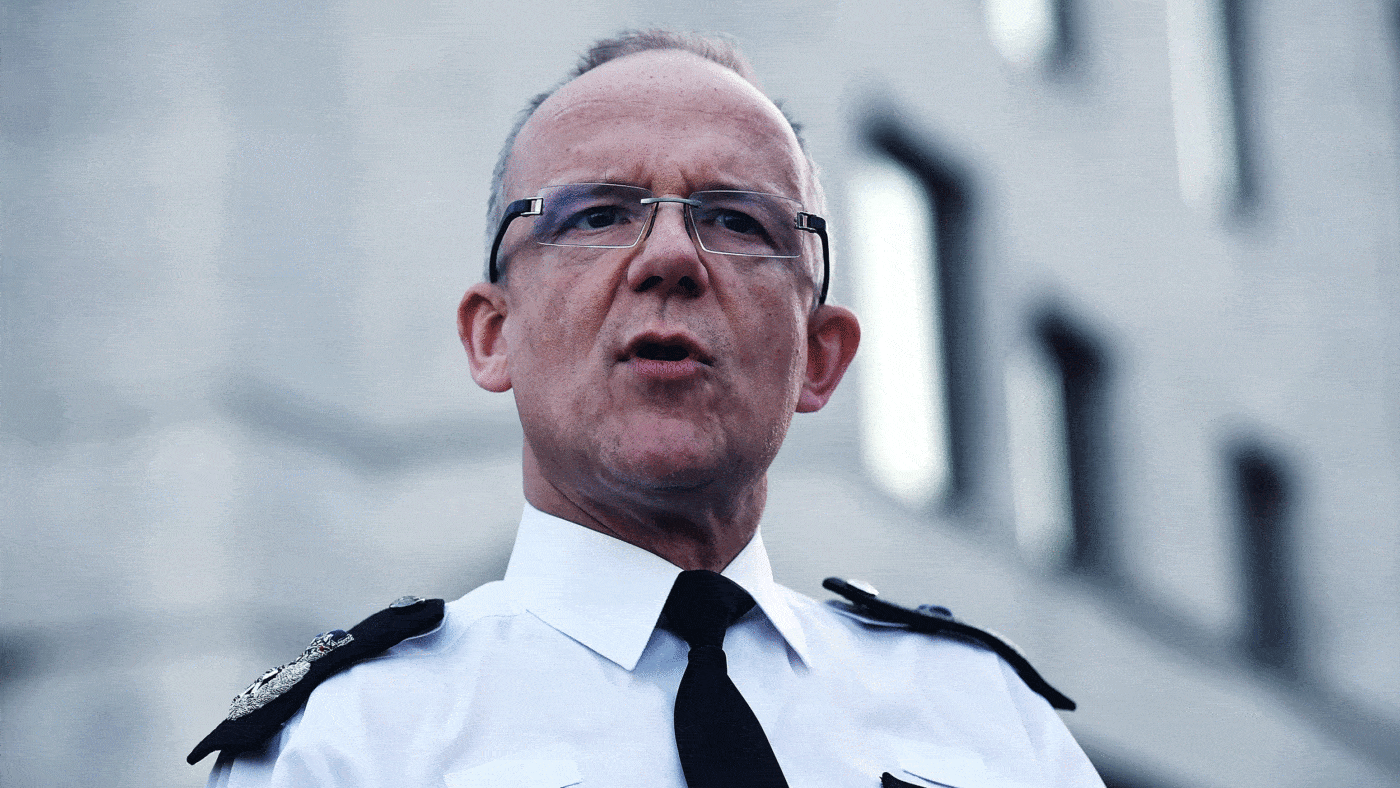A few months ago, I was ‘encouraged’ to apply for a role in overseeing a new code of ethics for policing. As the College of Policing was running this process, and I’m not a great fan of woke ideologues getting in the way of thief takers, I didn’t put a lot of effort into the application. In response to one of the ponderous questions on what a new code should be built around, I confined my response to this: ’physical and moral courage.’
I didn’t get far of course. The email, when it came provided a moment of unintentional hilarity citing with regret that the board had a good representation of people like me. But last weekend’s appointment of a new Commissioner of our beleaguered Met police, Mark Rowley, made me think again about those twin principles.
I know Rowley slightly. Enough to see that Priti Patel had made a wise decision even before Diane Abbot’s objection confirmed it. Most of the commentary on his appointment has focused on the admittedly enormous problems of big picture senior leadership and strategy. I have a feeling that his formidable experience in counter-terrorism will keep his reforming attention on the frontline and the communities they police. For Londoners, this is where moral and physical courage counts.
Speaking at a recent Policy Exchange event, the former NYPD commissioner credited with cleaning up the Big Apple in the 90s, Bill Bratton, told his audience that the most important words in the policing mission were to ‘prevent crime and disorder.’ He emphasised disorder – the thing that seems to occur where no middle class criminologists live – as being a powerful force of social corrosion. No amount of senior common room intersectional theory will restore communities where life is blighted by anti-social behaviour. Quality-of-life crimes empty neighbourhoods of potential and leave the vulnerable prey. This culture of lawlessness and impunity in places where there is no uninformed presence beyond a parking warden is not unconnected to the 30 teen homicides in London last year.
Policing the relationship between the Mayor, the Home Secretary and the Criminal Justice Commentariat will take a different set of skills to that which is required to police communities where the fear of crime is high and citizens have given up reporting it. For this we need men and women in uniform with moral and physical courage to do the incredibly complex – and sometimes lethal – work of law enforcement in a liberal democracy. That requires an extraordinary mix of skills and attributes in an environment increasingly hostile to the idea of uniformed authority, distrustful of its motives and apt to broadcast that over social media before the facts.
We have to grow and nurture officers who possess both the physical courage to run towards danger, and the moral courage to call out aberrant behaviour of colleagues who they might also have to rely on to get home safely. That will require real resilience and determination from the Commissioner to realise across the force. But if anyone can do it, it’s the man who led the national police response to our ‘year of terror’ in 2017.
Requiring and supporting constables to demonstrate courage is the ‘ground zero’ of the improvement the Met needs. As Rowley knows only too well from previous posts, counter-insurgency is only successful when hearts and minds are won over on the ground. This includes the battered frontline of officers, the vast majority of whom, in my personal experience, go to work to protect the public and whose morale is currently in the skip.
So how is this foundational physical and moral courage supported? Not by c-suite sloganeering, that’s for sure. But by investing in staff who have the leadership qualities to inspire, lead and where necessary enforce professional standards. One of the scandals that helped push Rowley’s predecessor, Dame Cressida Dick out the door, was the disgusting behaviour of officers at Charing Cross police station where a culture of racist, sexist and homophobic abuse and bullying proliferated. The Police complaints watchdog investigation laid much blame at a lack of effective supervision of officers by Sergeants and Inspectors, which led to isolated staff devolving into grossly unprofessional behaviour. The behaviour of frontline staff will make or break the Peelian contract with the people.
Rowley is smart enough to recognise that, within the noise of structural deficiencies, is the blaring signal from the foundations. Policing by consent is a two-way street. Much as officers need a clear set of values to operate by and be held accountable to, they require a commissioner who can reconnect with the people who we all turn to in the worst moments of our lives.
If politicians allow Commissioner Rowley to lead his force and invest his citizens in uniform with the moral and physical courage they need, then London – particularly those growing bits of it marooned in violence and disorder – wins. Let’s hope the contenders for Boris Johnson’s crown have something to say about how they will help Rowley deliver.
Click here to subscribe to our daily briefing – the best pieces from CapX and across the web.
CapX depends on the generosity of its readers. If you value what we do, please consider making a donation.


